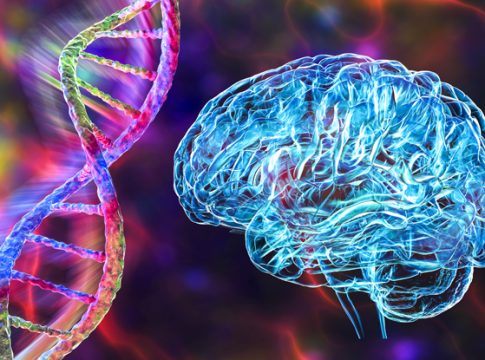Understanding Shared Genetic Foundations of Psychiatric Conditions
Recent research has illuminated an intriguing connection between eight different psychiatric disorders, revealing that they stem from a shared genetic heritage. As mental health continues to be critically important in our lives, understanding these connections may not only enhance our knowledge but also pave the way for more effective treatments.
Common Genetic Roots
A recent study conducted by a team from the University of North Carolina has identified specific genetic variants that are active in brain development stages across multiple psychiatric conditions, including autism, ADHD, schizophrenia, bipolar disorder, major depressive disorder, Tourette syndrome, obsessive-compulsive disorder, and anorexia. This insight opens up a new perspective on why these disorders often occur simultaneously in individuals and within families.
A Closer Look at Pleiotropic Variants
At the heart of this investigation are what scientists describe as pleiotropic variants. These variants influence not just one, but multiple traits and disorders. In the research, the team discovered that these shared genetic variations are significantly involved in various protein interactions in the brain. Understanding this pleiotropy is essential as it complicates how we classify these disorders but simultaneously offers promise for developing shared treatments.
The Role of Proteins
The proteins produced by these shared genes are interconnected, meaning that changes in them can cascade through the network, potentially affecting the brain’s overall functioning. This could explain why individuals with one psychiatric condition frequently display symptoms of another. For example, research indicates that nearly 70% of individuals diagnosed with either autism or ADHD also exhibit traits of the other condition.
Hope for Treatment
Recognizing the overlapping genetic influences allows us to envision a more unified approach to treatment. Instead of targeting each disorder in isolation, we can consider therapies that address the underlying genetic factors shared by these conditions. This could lead to more efficient and effective treatment options for many who struggle with mental health issues.
A Path Forward
As we learn more about the genetic underpinnings of these psychiatric disorders, we must also prioritize compassion and understanding in our mental health conversations. With nearly one in eight people worldwide living with some form of psychiatric condition, the urgency for innovative solutions cannot be overstated.
Empowering insights for readers:
- Stay Informed: Understanding the genetic basis behind psychiatric conditions can help demystify the challenges faced by many.
- Seek Support: If you or someone you know is affected by these conditions, connecting with mental health professionals can make a significant difference.
- Embrace Community: Remember, you’re not alone. Sharing experiences with others can foster understanding and healing.
As we continue to unpack this complex web of genetics and mental health, let’s remain hopeful and committed to advancing care that could lead to improved lives for many.

Covers wellness, nutrition, mental health, and daily life tips.
Bio: Talia brings a background in health journalism and holistic living to help readers live better, one tip at a time.

